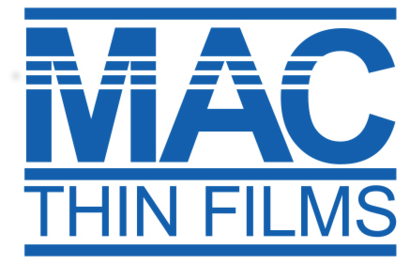Press Democrat - Santa Rosa tech startup finds new use for old OCLI machine
(live article here)
The Polaroid instant camera, the computer screen glare guard and the rear projection television long ago grabbed consumers’ attention before giving way to subsequent waves of technology. But the multi-chambered manufacturing line that made the optical components for such devices is still pumping out glass products in a weathered factory in south Santa Rosa.
In the late 1960s, the cost of developing the 100-foot-long production line represented a huge wager for Sonoma County tech pioneer Optical Coating Laboratory Inc. By all accounts, the bet paid off handsomely, providing the company with a breakthrough for making high-performance mirrors and anti-reflective glass in a series of dust-free, vacuum chambers — with electron beams vaporizing aluminum and other coating materials.
The line’s operators call the system the MAC, short for the Multi-layer Automatic Coater, and this spring it gained its third set of owners in its 44 years of operation. The manufacturing line went from OCLI to JDSU when the local company was sold to the Milpitas-based tech giant in 2000. And in early June, JDSU sold the equipment and subleased the rented factory space on Giffen Avenue to MAC Thin Films, a startup company in Santa Rosa.
Roughly 90 percent of the new company’s 45 employees previously worked for JDSU, and before that many had been employed for years with OCLI. That combined experience already has helped MAC Thin Films generate sales worth $2 million per quarter. In the coming year, revenues are expected to reach an annual rate of $10 million.
“We were able to hit the ground running,” said MAC Thin Films CEO Mark Madigan.
With the MAC and a smaller system for custom projects, the company today makes front-surface mirrors for copiers, bar code scanners and video projectors, as well as specialized screens for jet cockpits, armored vehicles and MRI machines. Some displays prevent electromagnetic interference or keep liquid crystal lighting components warm in subzero conditions. Others allow medical technicians and doctors to easily view images at twice the resolution of high-definition TVs.
Madigan, who worked in management for OCLI and JDSU for 28 years, acknowledged that the MAC has been around for decades. But he said its thin-coated mirrors and anti-reflective glass still “represent global benchmarks” for performance, and the MAC continues to put out “an economically viable product line.”
Good news for county:
The fact that a new company has kept the manufacturing line running is good news for Sonoma County, said Dick Herman, president of 101 MFG, a Petaluma-based alliance of manufacturing executives. Not only does the new business keep jobs here, but the company eventually will be looking to grow and take advantage of emerging technologies and devices that can benefit from its products.
“You’re going to have to think of new applications,” Herman said. “You’re going to have to think of new customer bases.”
The new company already is benefiting from the risk that OCLI founder Rolf Illsley took nearly a half century ago.
OCLI had been in the county about 15 years in 1966 when Illsley conceived the idea for the MAC. At that time, thin-coated glass typically was made in a single chamber where workers could apply only one coating at a time.
Illsley, now 93, said Friday in a brief interview that he was seeking a more competitive manufacturing process in order to allow OCLI to expand from military contracts to more commercial applications. As such, he wanted to develop a way to continuously feed glass through a series of vacuum chambers, sending it in bare at one end and coming out the other side coated up to six times with precise amounts of reflective or anti-reflective qualities as required by customers.


Nathan Chambers
Author